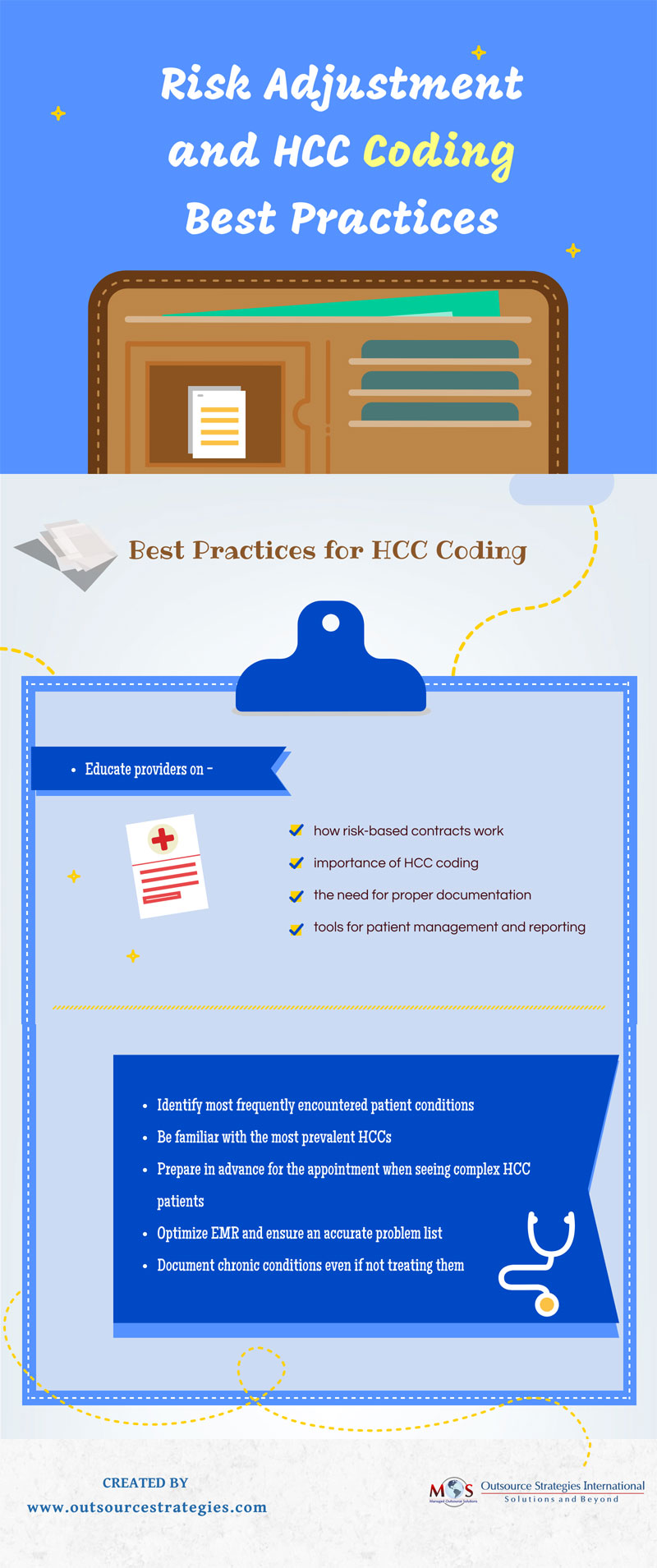Hierarchical Condition Category or HCC coding helps paint a picture of the whole patient and communicate patient complexity. Correct HCC coding enables better health management and helps proper assessment of quality and cost performance for accurate reimbursements from Medicare Advantage plans. Not adhering to risk adjustment and HCC coding requirements can adversely impact practice/hospital revenue. Risk adjustment is a method to offset the cost of providing health insurance for individuals with chronic health conditions. In a risk adjustment model, the payment rate for each patient depends on a variety of factors that determine the amount of risk/work involved to provide care for the patient. There are various risk adjustment models. HCC relies on ICD-10 coding to identify a patient’s health conditions and assign a risk score. The CMS uses HCC method to calculate risk scores. Partnering with an expert medical coding service provider can ensure appropriate reimbursement and reduce risk of denials and audits.
Check out the infographic below




